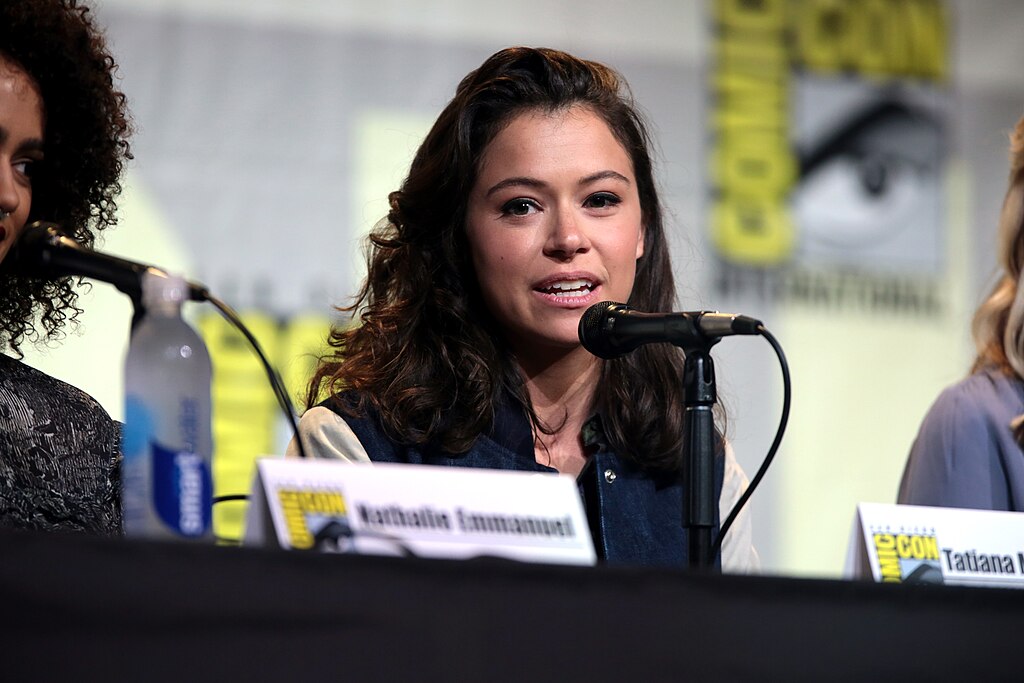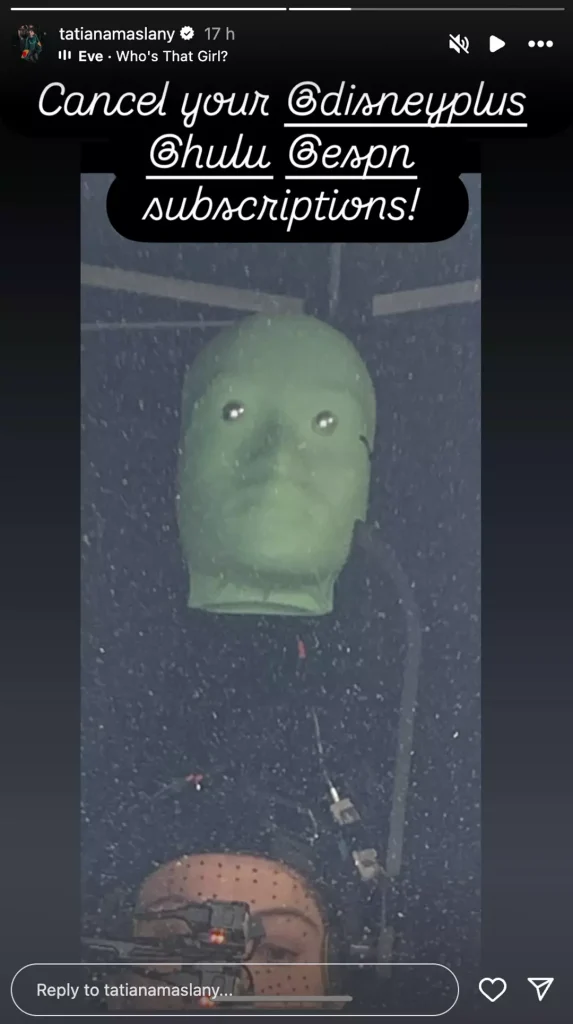Your cart is currently empty!
Marvel Star Encourages Disney Boycott Following Jimmy Kimmel Suspension Over Charlie Kirk Comment

The entertainment world has been shaken by a new clash at the intersection of politics, free speech, and corporate responsibility. A Marvel star is now calling for fans to cancel their Disney subscriptions after late-night host Jimmy Kimmel was suspended indefinitely over controversial comments about the death of conservative commentator Charlie Kirk. The situation has spiraled into a wider cultural storm, with Hollywood voices, political figures, and everyday viewers weighing in.

Jimmy Kimmel’s Controversial Comments and a Marvel Star’s Response
On Monday, September 15, during his late-night monologue, Kimmel directly addressed the fallout from Charlie Kirk’s killing. He told his audience: “We hit some new lows over the weekend with the Maga gang trying to characterize this kid who killed Charlie Kirk as anything other than one of them and doing everything they can to score political points from it.” The following night, he revisited the subject, saying: “Many in Maga-land are working very hard to capitalize on the murder of Charlie Kirk.”

These verbatim remarks quickly drew controversy, with critics arguing that Kimmel had crossed a line and supporters insisting he was highlighting a disturbing political response to Kirk’s death. Within days, ABC announced that Jimmy Kimmel Live would be suspended indefinitely. The network explained the show would be “pre-empted,” with other programming filling its slot until further notice.

The suspension quickly sparked backlash among viewers and industry figures, but one reaction stood out for its direct challenge to Disney itself. Tatiana Maslany — star of the Disney+ miniseries She-Hulk: Attorney at Law — publicly urged a consumer boycott of Disney’s streaming platforms. In a social post accompanied by an on‑set photo, she wrote: “Cancel your @disneyplus @hulu @espn subscriptions!” The directive explicitly targeted all three services and, coming from a performer tied to a Disney‑owned Marvel title, underscored the unusual nature of the protest. Maslany’s message focused on a specific viewer action — subscription cancellations — rather than broader arguments or industry commentary, keeping attention on Disney’s role at the center of the dispute.
Hollywood Reactions: A Divided Industry
The fallout from Kimmel’s suspension did not stop with Maslany’s boycott call. Prominent writers and actors quickly weighed in, exposing a rift over how Disney handled the situation. Damon Lindelof, best known as a producer and writer of Lost, described his response in sharp terms: “I was shocked, saddened and infuriated by yesterday’s suspension and look forward to it being lifted soon. If it isn’t, I can’t in good conscience work for the company that imposed it.” His statement framed the decision as a moral issue, questioning whether creatives could ethically continue working under Disney’s umbrella if the suspension persisted
Jean Smart, award-winning star of Hacks, added a broader cultural critique. She argued: “What Jimmy said was FREE speech, not hate speech. People seem to only want to protect free speech when it suits THEIR agenda. Though I didn’t agree at ALL with Charlie Kirk; his shooting death sickened me; and should have sickened any decent human being. What is happening to our country?” Her remarks widened the lens, connecting Kimmel’s case to a larger concern about selective defenses of free expression and the country’s polarized climate.
Together, these reactions illustrate that Disney’s decision reverberated far beyond late-night television. For Lindelof, the suspension raised professional and ethical stakes for Hollywood creators. For Smart, it raised civic questions about speech, morality, and the shifting boundaries of acceptable commentary in American culture. Their perspectives highlight how the industry remains divided between those who see the move as necessary corporate caution and those who fear it signals a chilling effect on creative voices.
Political Firestorm: Trump Responds
The political dimension of Kimmel’s suspension quickly surfaced when former President Donald Trump celebrated ABC’s move on his Truth Social platform. He posted: “Great News for America. Congratulations to ABC for finally having the courage to do what had to be done.” His reaction framed the decision not merely as a corporate disciplinary action but as a political victory, reinforcing long-standing tensions between Trump and late-night hosts who have often criticized him.
Trump’s decision to publicly align himself with the suspension also tied the episode to upcoming political events. He confirmed plans to attend Charlie Kirk’s funeral at State Farm Stadium in Arizona on September 21st, signaling solidarity with Kirk’s supporters and ensuring the controversy would remain entangled with conservative political narratives. In this context, Kimmel’s remarks and ABC’s response became more than an entertainment story—they were absorbed into the broader ideological battles shaping U.S. politics. By praising the network, Trump positioned the suspension as part of a larger confrontation between mainstream media voices and his political movement.
The Boycott Question: Can It Succeed?
The push to boycott Disney following Kimmel’s suspension raises questions about whether such actions can deliver lasting consequences for a corporation of Disney’s scale. Historically, entertainment boycotts generate short bursts of cancellations or social media campaigns but often fade once the news cycle shifts. In this case, however, the involvement of Tatiana Maslany — an actor tied directly to Disney’s Marvel franchise — gives the protest a higher profile than most grassroots efforts. Her appeal for viewers to cancel subscriptions placed pressure squarely on Disney’s core revenue streams, particularly Disney+, Hulu, and ESPN.
Whether this momentum can be sustained depends on several factors. First, Disney’s vast entertainment portfolio makes it challenging for audiences to fully disengage; consumers who cancel Disney+ may still interact with the company through Marvel films, ESPN coverage, or theme parks. Second, subscription cancellations typically spike in the immediate aftermath of controversy but decline once alternative content draws viewers back. Third, public boycotts are often fragmented — while some viewers are motivated by solidarity with Kimmel, others may resist because of loyalty to Disney programming.
The durability of this boycott also ties into broader debates about consumer activism. If cancellations remain visible and sustained, Disney may face reputational risks alongside financial pressure. If not, the episode may instead highlight the difficulty of organizing lasting resistance against companies with entrenched global influence. In that sense, the question of success is not only about numbers but also about how long the protest remains part of public conversation.
Free Speech vs. Corporate Image
Disney’s suspension of Kimmel highlights the increasingly precarious role of corporations in mediating speech. Media companies are no longer judged solely on the content they produce but also on how they react when employees speak in ways that spark public controversy. In this instance, Disney had to weigh the reputational risk of being seen as tolerating remarks offensive to some audiences against the backlash that would inevitably follow any action viewed as censoring a prominent comedian. That calculation underscores the double bind corporations face: silence can look like complicity, while intervention can appear as suppression.
This balancing act is particularly sharp for Disney, which has been a flashpoint in cultural debates ranging from LGBTQ+ representation to labor disputes. Each decision is scrutinized through a political lens, forcing the company to operate not only as an entertainment powerhouse but also as a symbolic player in the culture wars. The Kimmel case shows how quickly a late-night joke can escalate into a high-stakes test of corporate values, investor concerns, and public trust. It also illustrates how brands today must navigate environments where both action and inaction invite intense criticism.
Reflecting on the Bigger Picture
The controversy surrounding Kimmel’s remarks, Disney’s response, and Maslany’s boycott call underscores a growing entanglement between entertainment and political life. What once might have been seen as an isolated dispute over a late-night joke has instead become emblematic of broader national divides. The episode demonstrates how cultural institutions no longer operate on neutral ground; every programming choice, suspension, or statement is interpreted through partisan lenses and amplified across social platforms.
What makes this moment especially revealing is the convergence of three forces: corporate decision-making, celebrity influence, and political reaction. Disney’s suspension shows how entertainment companies are compelled to act quickly under public scrutiny. Maslany’s boycott appeal highlights how stars are willing to risk friction with their employers to voice dissent. Trump’s public endorsement of the suspension illustrates how political leaders seize entertainment controversies to reinforce ideological narratives. Each element feeds into the other, transforming a workplace decision into a cultural flashpoint.
This interconnectedness raises difficult questions about the future of public discourse. The lines between free expression, corporate accountability, and political opportunism are increasingly blurred, leaving audiences to navigate a media landscape where the entertainment they consume doubles as a battleground for competing values. As these tensions intensify, moments like Kimmel’s suspension may be remembered less for the specific words spoken and more for what they reveal about how deeply polarized—and interdependent—our cultural and political systems have become.
A Culture in Conflict
The suspension of Jimmy Kimmel and the subsequent Disney boycott encapsulate the broader culture clash shaping today’s media environment. For some, Disney’s action represents overdue accountability, while for others it symbolizes a troubling slide into censorship. The fact that a Marvel actor like Tatiana Maslany has openly called on audiences to cancel their subscriptions shows just how porous the boundary has become between entertainment and activism.
What makes this moment distinctive is not only the polarized reactions but also the way they reveal shifting expectations of corporations, celebrities, and consumers alike. Companies are increasingly forced into political roles, whether they want them or not. Stars are no longer expected to remain silent on controversies tied to their employers, and audiences are encouraged to treat their subscription choices as political statements. These dynamics suggest that cultural battles are now fought as much in the marketplace as in the voting booth.
For viewers, the takeaway is less about siding with one camp and more about recognizing the influence their attention and spending carry. Every cancellation, every endorsement, every social media share contributes to a feedback loop that shapes how corporations act in moments of controversy. In this sense, the Kimmel–Disney fallout is not just another celebrity headline; it is a reminder that our cultural conflicts increasingly unfold in the choices we make about what to watch, what to support, and what to reject.
Featured Image from @jimmykimmel on Instagram
